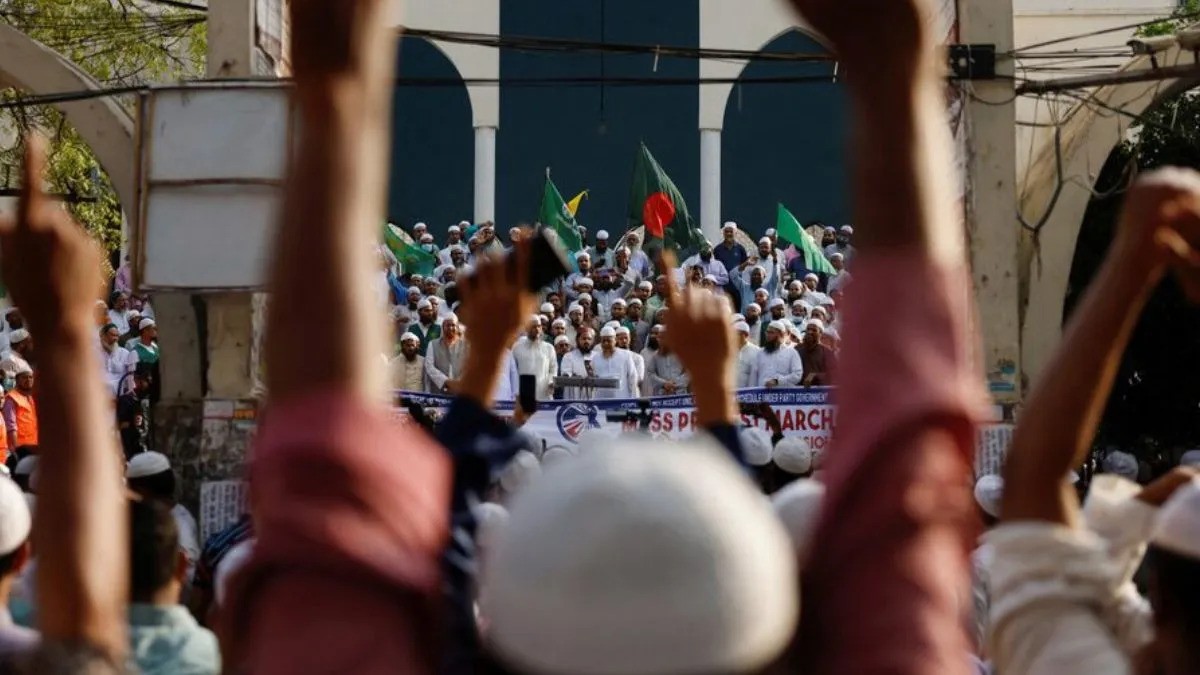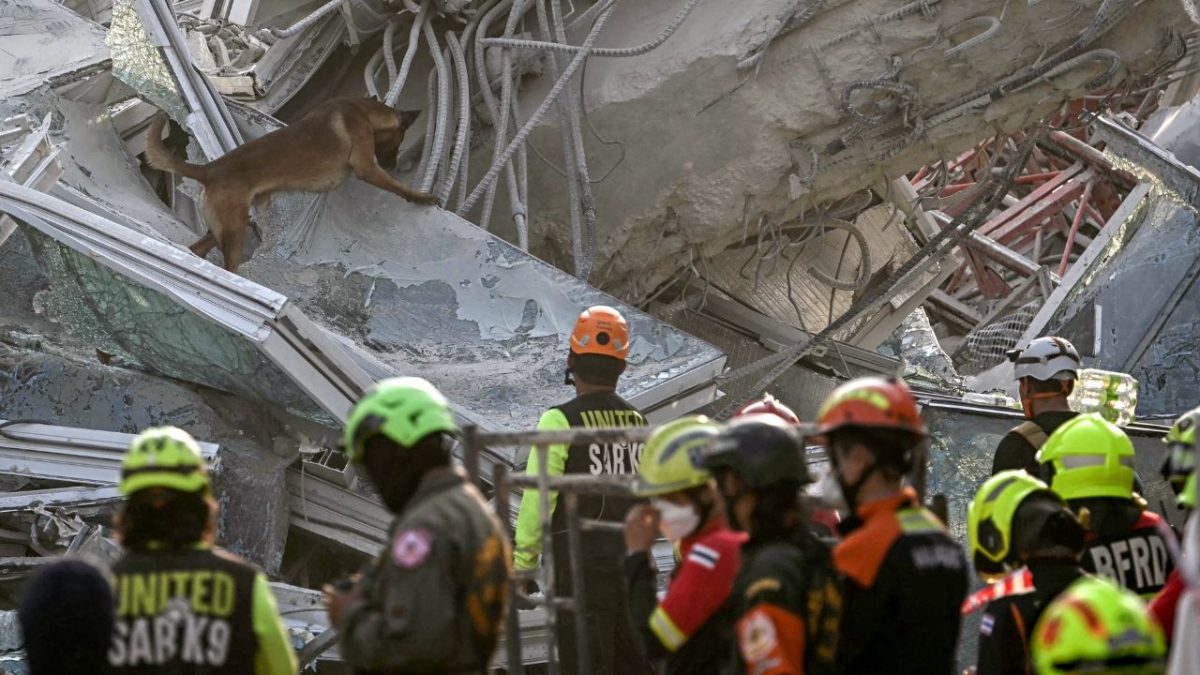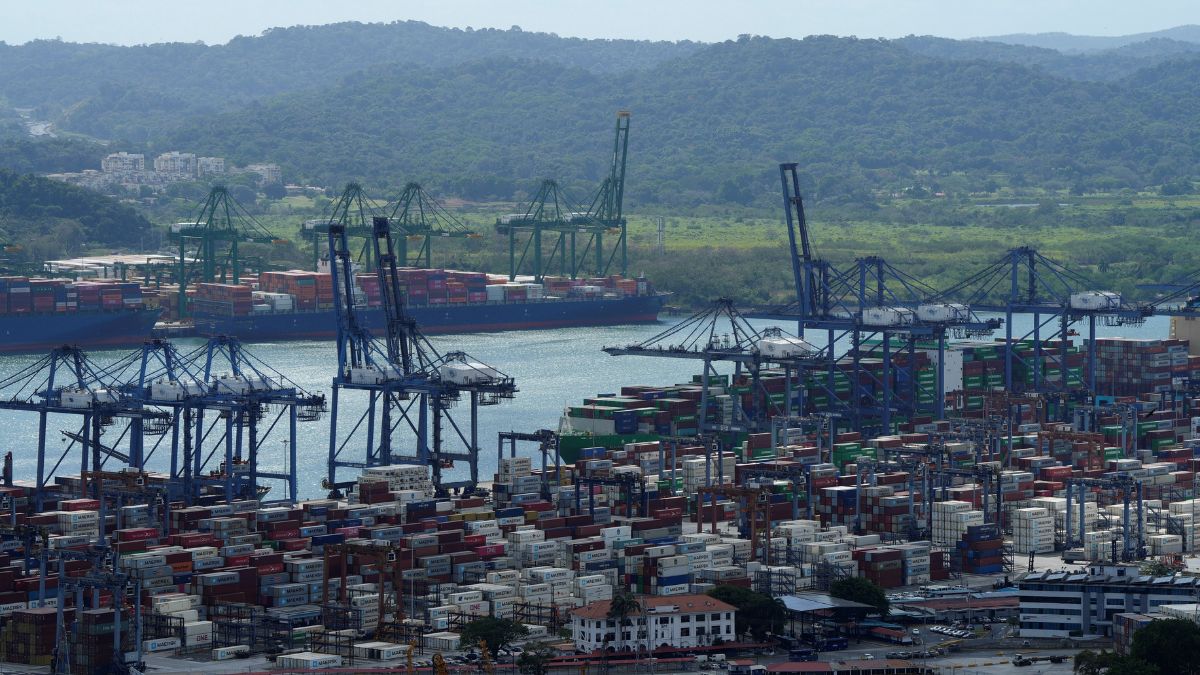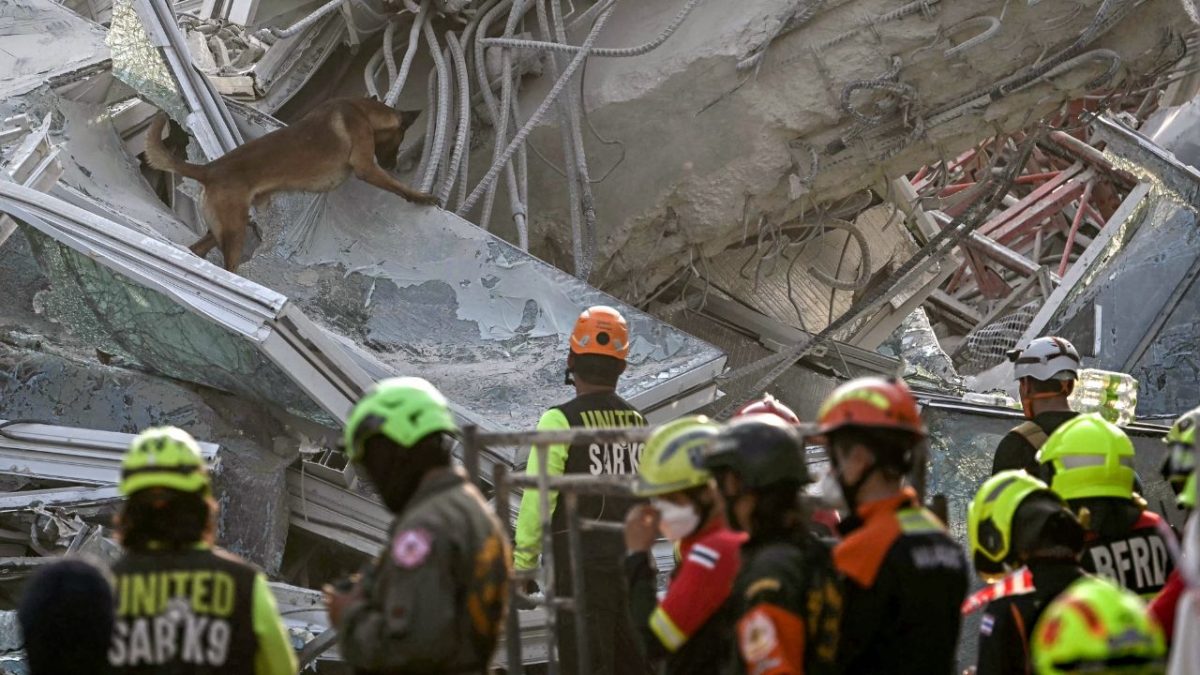With the Sheikh Hasina regime’s fall in Bangladesh and the complete ostracisation of the Awami League, it may appear that the second (now largest) party—the Bangladesh Nationalist Party—has made the most significant political gains.
However, the political scenario six months after Hasina’s deposition reflects a different picture—the resurgence of Islamist politics and, in effect, the secular/fundamentalist debate making a comeback.
On one hand, the Islamist parties are buckling up to secure political legitimacy now that a national election is slated for December.
On the other hand, Islamist groups are increasingly influencing Bangladesh’s social life, raising concerns about the country’s future under Islamist rule if it indeed becomes a reality.
A lot of this resurgence has to do with the present Muhammad Yunus-led interim government giving in to Islamists’ whims.
First, it revoked the ban on Jamaat-e-Islami Bangladesh and its student wing, Islamic Chhatra Shibir (ICS).
Second, it released on bail the al-Qaeda-affiliated Ansarullah Bangla Team (ABT) chief, Jashimuddin Rahmani, convicted of ABT’s terror activities from 2013 to 2016.
Cases against Hefazat-e-Islam leader Mamnul Haque, along with other allied parties involved in the Shapla Square massacre case, were also dismissed, paving the way for Haque’s return to politics.
Third, to everyone’s shock, Yunus met the leaders of several Islamist parties, including Hefazat-e-Islam, to discuss political reforms.
Of the 44 active political parties in Bangladesh, 13 are Islamist parties. The Jamaat-e-Islami, the Islami Andolan, and the Khilafat Majlis promote a political model based on Islamic doctrine, especially the Islamic Sharia law.
Their demands for constitutional reform in line with Islamic principles, which inevitably are against secular principles of the 1972 constitution, have been on the horizon.
Meanwhile, Islamist organisations, long stifled by the previous Awami League government, found new breathing spaces to push for their demands.
Just a day after the establishment of the interim government, Hizb ut Tahir (HuT-B), a pan-Islamist jihadist organisation banned in Bangladesh under the Anti-Terrorism Act since 2009, organised a rally in Dhaka outside its largest mosque demanding the establishment of the Islamic Caliphate system in Bangladesh.
It said the caliphate is the only path to ‘real liberation’, while the organisation’s Bangladesh chief even demanded the ban be lifted by the interim government.
HuT-B also hit the headlines for allegedly orchestrating a procession by Dhaka students under the banner of ‘Conscious Teachers and Students’ in October, where they carried flags that closely resembled the ISIS flag and openly demanded the establishment of an Islamic Caliphate system in Bangladesh.
In December, Yunus appointed Nasimul Gani, one of the founding members of HuT-B, as the home secretary of the interim government, indicating the inclusion of those affiliated with extremist organisations in the state administration.
Hefazat-e-Islam, another prominent Islamist organisation noted for its opposition to Bangladesh’s present constitutional and societal setting and championing a conservative take on Islamic values in their 13-point demands, has also been prominent lately. Its chief, Mamunul Haque, advocated the withdrawal of almost 300 cases slapped against its organisation leaders and members. The organisation further demanded a ban on the Awami League.
The interim government has somehow conceded to this demand and banned the Awami League’s student wing—Bangladesh Chhatra League—though many point out that this ban is unfair and unconstitutional.
Recently, Haque, in a public meeting in Cox’s Bazar, opined the complete erasure of the present constitution where no law against the Quran and Sunnah can be added to the constitution.
Members of Hefazat are now active in blocking highways and disrupting public life, in their protest demanding the withdrawal of all cases of violence filed against more than 3,000 of its members from 2016 to 2021.
Jamaat-e-Islami, the largest Islamist political party, is busy removing the tag of ‘war criminal’ attached to it while showing no indication of apologising for its unforgiving role in the 1971 liberation war.
Assuming a ‘moderate’ and ‘tolerant’ role, Jamaat now desires a political transition to an ‘Islamic welfare state’. Jammat proposed 81 reforms to the interim government in October last, predominantly educational and cultural reforms to align them with Islamic values. Jamaat’s Ameer also recently met Pakistan’s high commissioner to strengthen bilateral ties.
Indeed, the credit for Bangladesh’s present warming up its relations with Pakistan, not demanding an ‘official apology’ from Pakistan for its role in the 1971 war, goes to the Jamaat. A strong Pakistan-Bangladesh tie will erase Jamaat’s historical baggage and help gain political legitimacy.
Boldly, Jamaat’s Ameer has called Ghulam Azam, the notorious Jamaat leader executed for its crimes against humanity in the 1971 Liberation War, a ‘victim of Awami League tyranny’ and has been organising rallies to pressure the interim government to release Jamaat’s assistant secretary general ATM Azharul Islam, who has been convicted of crimes against humanity under the International Crimes Tribunal.
Like the BNP, the Jamaat has intensified efforts to woo Islamist parties to form alliances in the upcoming national election. One of the demands for political reforms among Islamist parties is their preference for a proportional representation vote, replacing the existing first-past-the-post, which they believe will enable Islamist parties to gain in national polls.
On the other hand, interference in social, cultural, and educational activities by Islamist groups has been recurring. Under their pressure, the interim government is believed to revise textbooks.
Earlier, the committee established for revising textbooks was dissolved under criticism for not including Islamic scholars in the committee. The revised textbooks have eroded Sheikh Mujibur Rahman’s legacy, rewritten the history of the 1971 war, and downplayed India’s role in it—all conducive to removing Jamaat’s ‘war crime’ tag.
Events like Lalon Fakir’s death anniversary and Basanta Utsav faced obstruction and cancellation for being incompatible with Islam, and women’s football tournaments faced cancellation for being ‘un-Islamic’, adding to the spike in anti-women fundamentalism.
It is, therefore, clear that Islamist politics in Bangladesh has a resurgence. While it is giving a few glimpses of Bangladesh’s future under Islamist rule, it remains to be seen if the people’s mandate agrees to such a dream.
The author is Chairman of Law and Society Alliance, a New Delhi-based think tank. Views expressed in the above piece are personal and solely those of the author. They do not necessarily reflect Firstpost’s views.


)
)
)
)
)
)
)
)
)



